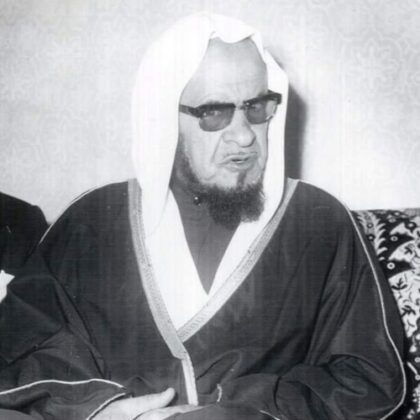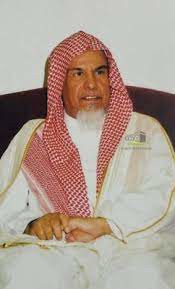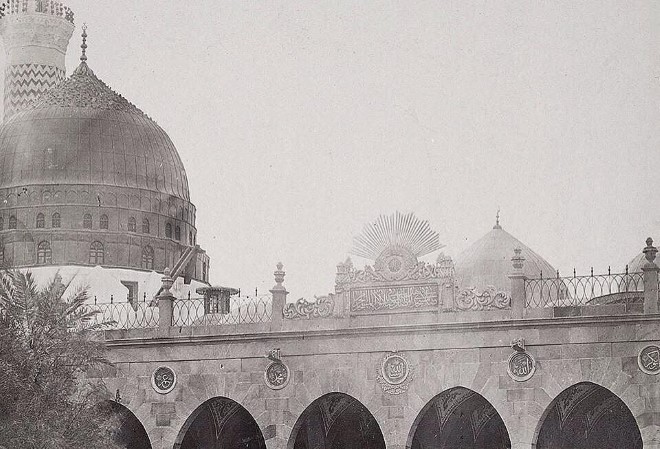Memoir Eng
Chapter 19: Fridays in Medina and Mecca
Thursdays and Fridays are the weekend holidays for Saudi Arabia. The history of the beginning of the tradition of Thursdays and Fridays as weekends could date back to the rule of Caliph Umar al-Khattab. At the time, he declared Thursdays and Fridays as holidays for children who were studying at katatib [1] after having five days full of learning. [2]
Around 11 in the morning or 12 in the afternoon at the latest, Zul would already be on board the bus prepared by the university’s administration headed to Nabawi Mosque. There are around 10-15 university buses that will transport the students there. People started to fill the Nabawi Mosque at 1 in the evening before the Friday prayer commences or earlier if it was in the month of Ramadhan. Friday is an honoured and blessed day for the Muslim ummah. The reason is there are numerous hadiths that narrate the favours and blessings on Fridays. From Abu Hurairah radhiyallahu ‘anhu, the Prophet PBUH said:
الصَّلَاةُ الْخَمْسُ، وَالْجُمْعَةُ إِلَى الْجُمْعَةِ، كَفَّارَةٌ لِمَا بَيْنَهُنَّ، مَا لَمْ تُغْشَ الْكَبَائِرُ
“Five prayers and from one Friday prayer to (the next) Friday prayer is an expiation (of the sins committed in between their intervals) if major sins are not committed.” [3]
Imam al-Nawawi explained that everything that is stated in the hadith is an expiation of sin if there are minor sins committed. If there were none (minor or major sins), hence goodness will be recorded and his status will be elevated. If there is a major sin and no minor sin, then hopefully, it could lighten the major sin committed. [4]
“Who’s the imam today?” Taufik Tee asks. He’s Zul’s friend from Johor. “I heard one of the other congregants say that for today, the khatib and imam is Syeikh ‘Abd al-‘Aziz bin Salih al-Salih.”[5] Zul answered after completing his recitation of Surah al-Kahfi as he waits for the time for prayer. Coincidentally, when Zul was just enrolled into the Islamic University of Medina, Syeikh ‘Abd Aziz bin Salih al-Salih was in his final duration of service. He had the opportunity of praying together as the Syeikh led the prayers.

Syeikh ‘Abd al-‘Aziz bin Salih al-Salih
The Syeikh will usually always recite verses 30-35 Surah Fussilat, each time it was his turn to lead the Friday prayer.
إِنَّ الَّذِينَ قَالُوا رَبُّنَا اللَّهُ ثُمَّ اسْتَقَامُوا تَتَنَزَّلُ عَلَيْهِمُ الْمَلَائِكَةُ أَلَّا تَخَافُوا وَلَا تَحْزَنُوا وَأَبْشِرُوا بِالْجَنَّةِ الَّتِي كُنْتُمْ تُوعَدُونَ نَحْنُ أَوْلِيَاؤُكُمْ فِي الْحَيَاةِ الدُّنْيَا وَفِي الْآخِرَةِ وَلَكُمْ فِيهَا مَا تَشْتَهِي أَنْفُسُكُمْ وَلَكُمْ فِيهَا مَا تَدَّعُونَ نُزُلًا مِنْ غَفُورٍ رَحِيمٍ وَمَنْ أَحْسَنُ قَوْلًا مِمَّنْ دَعَا إِلَى اللَّهِ وَعَمِلَ صَالِحًا وَقَالَ إِنَّنِي مِنَ الْمُسْلِمِينَ وَلَا تَسْتَوِي الْحَسَنَةُ وَلَا السَّيِّئَةُ ادْفَعْ بِالَّتِي هِيَ أَحْسَنُ فَإِذَا الَّذِي بَيْنَكَ وَبَيْنَهُ عَدَاوَةٌ كَأَنَّهُ وَلِيٌّ حَمِيمٌ وَمَا يُلَقَّاهَا إِلَّا الَّذِينَ صَبَرُوا وَمَا يُلَقَّاهَا إِلَّا ذُو حَظٍّ عَظِيمٍ
“Indeed, those who have said, “Our Lord is Allah ” and then remained on a right course – the angels will descend upon them, [saying], “Do not fear and do not grieve but receive good tidings of Paradise, which you were promised. We [angels] were your allies in worldly life and [are so] in the Hereafter. And you will have therein whatever your souls desire, and you will have therein whatever you request [or wish]. And who is better in speech than one who invites to Allah and does righteousness and says, “Indeed, I am of the Muslims.” And not equal are the good deed and the bad. Repel [evil] by that [deed] which is better; and thereupon the one whom between you and him is enmity [will become] as though he was a devoted friend. But none is granted it except those who are patient, and none is granted it except one having a great portion [of good].”
Caliph ‘Uthman bin ‘Affan commented on the verse (إِنَّ الَّذِينَ قَالُوا رَبُّنَا اللَّهُ ثُمَّ اسْتَقَامُوا) saying, “You should purify intention for the sake of Allah.” [6] According to Ibn Kathir, the one who invites to Allah as stated in the verse (وَمَنْ أَحْسَنُ قَوْلًا مِمَّنْ دَعَا إِلَى اللَّهِ وَعَمِلَ صَالِحًا وَقَالَ إِنَّنِي مِنَ الْمُسْلِمِينَ) are those who invites to Allah SWT and at the same time, they are following their own advice. They call towards righteousness and repel evil, concurrently they also implement what they said. They practise doing good and leave that act of shirk towards Him. [7]
The Syeikh recitation isn’t too melodious, unlike some other imams. He has his own recitation style rhythm. However, every enunciation of the Quranic verse from him deeply moved the hearts of the listeners. Maybe that is how the recitation of those who are sincere in their intention always recite the Quran.
As expected, Syeikh’s sermon is greatly anticipated by many. He didn’t just read from a text, rather he truly delivered his sermon. Syeikh is among the few khatibs who are given special permission by The Royal Council of Saudi Arabia to give sermons without a text. Every word conveyed greatly influenced the people and this made him a highly regarded and respected imam and khatib in the land of Medina.
Other than him, Syeikh ‘Abdullah al-Zahim [8] and Syeikh ‘Ali al-Huzaifi [9] are also among Zul’s favourite imam and khatib. Syeikh ‘Abdullah al-Zahim can easily be recognized by his black beard and spectacles. His recitation is fluent and rapid, different than Syiekh ‘Ali al-Huzaifi’s melodious recitation that is easily copied.

Syeikh ‘Abdullah al-Zahim
Every now and again, Zul would plan with Affandi, Zaini, Hilmi, Shohor Bani, Yasir, Zulazhan and the others to perform their Friday prayer at al-Qiblatain Mosque, approximately 3 kilometres from Islamic University Medina. Qiblatain Mosque is a historical mosque where it witnesses the change of the Muslim ummah Qibla from Masjidil Aqsa to Masjidil Haram.
In Surah al-Baqarah, verse 144, Allah SWT states:
قَدْ نَرَى تَقَلُّبَ وَجْهِكَ فِي السَّمَاءِ فَلَنُوَلِّيَنَّكَ قِبْلَةً تَرْضَاهَا فَوَلِّ وَجْهَكَ شَطْرَ الْمَسْجِدِ الْحَرَامِ وَحَيْثُ مَا كُنْتُمْ فَوَلُّوا وُجُوهَكُمْ شَطْرَهُ وَإِنَّ الَّذِينَ أُوتُوا الْكِتَابَ لَيَعْلَمُونَ أَنَّهُ الْحَقُّ مِنْ رَبِّهِمْ وَمَا اللَّهُ بِغَافِلٍ عَمَّا يَعْمَلُونَ
“We have certainly seen the turning of your face, [O Muhammad], toward the heaven, and We will surely turn you to a qiblah with which you will be pleased. So turn your face toward al-Masjid al-Haram. And wherever you [believers] are, turn your faces toward it [in prayer]. Indeed, those who have been given the Scripture well know that it is the truth from their Lord. And Allah is not unaware of what they do.”
Just as its name suggests, the mosque is called al-Qiblatain Mosque which means it has two qibla. Initially, this mosque is named Bani Salamah Mosque, for it was built on the site of Bani Salamah’s house. The mosque is surrounded by gardens and al-‘Aqiq valley is stretched nearby.
“When the Rasullullah PBUH arrives in Medina, the Prophet PBUH performed his prayer facing the Baitul Maqdis as the qibla. The Jews in Medina were very proud of this. At the same time, Rasullullah PBUH preferred the Kaaba as the qibla for since Baitul Maqdis is the qibla, it has become a mocking matter for the Jews. Rasullullah PBUH then prayed to Allah SWT asking for revelation from Him.” Such is the explanation from Zul to the new students who have just registered at the Islamic University of Medina. Zul loves to narrate the history of the land of Medina and its surrounding areas to his friends and juniors. Indirectly, this helped him in encouraging him to read more books related to the history of the Two Holy Lands.
He then continued his story, “After about 16 to 17 months of the Rasullullah PBUH praying while facing Baitul Maqdis, the Prophet PBUH then received the command from Allah SWT to face the Kaaba. This incident happened in the month of Rejab, the second year of Hijrah. The changing of the qibla took place when the Prophet PBUH was praying in congregation in a mosque located at the edge of the city Medina. To date, the mosque retained its two mimbars, one facing the Kaaba the other to Baitul Maqdis and it is known as al-Qiblatain Mosque.”
“Ustaz Zul! Who is your favoured imam or khatib here?” One of the juniors asked. Zul smiled and repositioned himself as he took a sip of his ‘asab [10]. “There is one khatib that I admire. He’s ardent and passionate when delivering his sermons. His name is Syeikh Ismail Humaidi [11]. The unique thing about Syeikh’s sermon is that it’s a series. He would also include interesting stories in his sermon. So, people will wait in anticipation wanting to hear the continuation of the story. I’m reminded of one sermon he gave where he cited the words of Syeikh Muhammad al-Ghazali, a famours scholar from al-Azhar.” Zul recounted enthusiastically, imitating the tone of the sermon given by Syeikh Ismail Humaidi.
Sometimes, Zul will head to Quba’ Mosque for his Friday prayer. Among the scholars who had given the Friday sermon, there is his own teacher Syeikh Dr Muhammad bin Muhammad al-Mukhtar al-Syinqiti [12].
“Solaaahhh…Solahhhh…bissur’ah!” [13], the voice of the Haiah Amar Ma’ruf Nahi Munkar officer could be heard as he instructed the shops to be closed while tapping and knocking on the shops’ doors with his baton. This is an exemplary custom where when it is the time for Friday or five obligatory prayers, all the shops will be closed immediately as is. None of the shops will be open. However, no theft cases are reported, even when the shop owners left their shops without locking them to perform the Friday prayer. This is among the unique things found here.
If Zul and his friends went to Mecca, they wouldn’t miss the opportunity to pray at the Masjidil Haram. Among the famous Imam and Khatib there are Syeikh Abdullah Khayyat[14], Syeikh ‘Abdullah al-Khulaifi[15], Syeikh Muhammad bin ‘Abdullah al-Subayyil[16], Syeikh Salih bin ‘Abdullah bin Humaid[17] and a much younger but rising imam named Syeikh ‘Abd al-Rahman al-Sudais[18]. The Bilal? It is none other than Sheikh Ali Abdul Rahman Ahmed Mulla [19], who is the crowd’s favourite. His adhan has become the Masjidil Haram’s trademark.

Syeikh Muhammad bin ‘Abdullah al-Subayyil
“It is obligatory for us to support and band together in the fight of mujahidin in Afghanistan. At the very least, lift up your hands and pray so that they receive the help and guidance from Allah in this war!” Syeikh Salih bin ‘Abdullah bin Humaid delivered his Friday sermon fervently in the sweltering heat of the afternoon. Beginning in the year 1979 until 1989, the Muslim world is faced with the Soviet-Afghan War episode which showcased a series of uprisings of the mujahidin and it ended with the victory of the Afghanistan mujahidin at the time.
Current Muslim issues such as the Palestine and Rohingya issues are among the common topics in the sermons given by the khatibs in Masjidil Haram and Nabawi Mosque. Every khatib has his own style and most certainly they were filled with verses of the Quran, hadiths and interesting salafussoleh stories to attract and captivate the audience to focus and listen to them.
The Bab al-Salam door in Nabawi Mosque is also the entrance to the Rasullullah PBUH’s tomb of which is also the favoured place for students to rest and discuss while waiting for the Asar prayer. It has become a custom in Nabawi Mosque where students will not immediately return after the Friday prayer. Some chose to stay and perform i’tikaf or sleep until it is time for Asar, including Zul. Ever so often, Zul will only go back after Isya’ because he’s busy with talaqqi classes with the masyaikh in Nabawi mosque from one pillar to another.
******
“Zul. I’m melting in this sweltering heat. Just look at the weather. It’s stifling hot. Do you still want to go and watch the hudud punishment? You’re sure about this?” Zaini asked while fanning himself with his jubah.
“Yes, this is not implemented in Malaysia,” Zul answered simply, peeking through the crowd trying to look at the place where the hudud sentencing will be performed. After the Friday prayer, people start to gather at the Nabawi Mosque’s yard where the punishment will be conducted. They all waited nervously. A voice is heard making the announcement of the punishment to be served in a while. Two people’s hands will be amputated for the crime of theft while another two will be beheaded for qisas.
Hudud in Arabic is a plural form of the word hadd, which means limitation. The word hududullah (limitations set by Allah) is mentioned several times in the Quran, warning Muslims against sinning or transgressing the said limits and that they shouldn’t even go near the limitations set.
تِلْكَ حُدُودُ اللَّهِ فَلَا تَقْرَبُوهَا كَذَلِكَ يُبَيِّنُ اللَّهُ آيَاتِهِ لِلنَّاسِ لَعَلَّهُمْ يَتَّقُونَ
“These are the limits [set by] Allah, so do not approach them. Thus does Allah make clear His ordinances to the people that they may become righteous.” [20]
Allah SWT stated:
وَالسَّارِقُ وَالسَّارِقَةُ فَاقْطَعُوا أَيْدِيَهُمَا جَزَاءً بِمَا كَسَبَا نَكَالًا مِنَ اللَّهِ وَاللَّهُ عَزِيزٌ حَكِيمٌ
“[As for] the thief, the male and the female, amputate their hands in recompense for what they committed as a deterrent [punishment] from Allah. And Allah is Exalted in Might and Wise.” [21]
While waiting for the punishment to be carried out, Zul explained the misunderstanding regarding the punishment in Islam of the crime of theft to Shohor Bani and Zaini. “Did you know that not all burglary or theft will be sentenced with the punishment of amputation of one’s hands? This is one of the major misunderstandings in Islam. First, the stolen item must be movable, exceed a certain value, is properly kept, is owned by someone and the ownership is clear. If the stolen item is of negligible value, then the offender is not sentenced to amputation. Examples of negligible valued items are electricity, grass, books, perishable items, prohibited items in Islam and kidnapping of people. If the value of the stolen item is less than ¼ dinar or 3 dirhams, then he can’t be amputated. Even if the ownership of the stolen item is unclear, then the punishment of amputation can be abrogated. For example, if a person is unsure as to whether an item is his or not, then he took it and later discovers that it’s not his. It’s the same for cases where a person is forced to steal and others, each case has to first be thoroughly analysed.” Zul explained at length to Shohor Bani.
“Oh…I see, then if Islamic ruling is enforced, it’s nearly impossible for a person to receive the amputation punishment. Alhamdulillah, Islam is fair. I also heard that the statistic for crimes in Saudi is low.” Shohor Bani smiled, satisfied with the explanation given by his friend.
The ambulance arrived and are all set and ready. In a short amount of time, the punishment is successfully carried out. The corpses of the convicts are swiftly carried out, as well as the amputated offenders were immediately given medical care and brought into the ambulance. Zul saw several people fainted after witnessing the punishments being conducted. All of them were also brought into separate ambulances, leaving the site of the punishment.
Zul and Shohor Bani were left blinking in shock. Shohor turned slowly to his friend and said, “You’re the one who insisted on watching it right? Hoh! You are as pale as a corpse now!” Zul smiled foolishly, scratching his head. It is truly an invaluable experience. One that is terrifying and humbling at the same time.
*********
“Woah… that’s frightening, grandpa.” Sarah said, her small eyes wide open.
“It is, isn’t it? It is so that people will also feel terrified to do anything bad. There’s a lot of leeways even for offenders in Islam. It’s not easy for them to be punished as such unless they were proven truly guilty, then they are punished.” Grandpa Aki explained briefly the concept of hudud in Islam.
“Sarah, just now if you remember, I told you how Zul didn’t go back home after Asar right? He went to learn from the syeikhs near the pillars in the prophet’s mosque. Sometimes he would only return to his dorm after Isya’. Do you want me to tell you about what happens then?” Grandpa Aki grins brightly. “Yes…yes…yes, please!” Sarah jumped in excitement.
_______________________________
[1] Madrasah / class or place to study in the early Islamic era [2] Al-Taratib al-Idariyyah, 2/200 [3] Sahih Muslim, no. 233 [4] Syarh al-Nawawi ‘ala Muslim, 3/113[5] Imam and Khatib in Nabawi Mosque. He is also the chief of courts in the Madinah al-Munawwarah district. Born in 1911 in al-Majma’ah and passed away in 1994. He was buried in the Baqi’ graveyard. Follow his supplication when he was leading the witir prayer on the last nights of Ramadhan at https://www.youtube.com/watch?v=FgZPrVsJmuc
[6] Tafsir al-Baghawi, 4/65 [7] Tafsir al-Qur’an al-‘Azim, 4/102 [8] Follow his recitation when he was leading the prayer in Nabawi Mosque https://www.youtube.com/watch?v=TJOTvYcJ-5A [9] Imam and Khatib in Nabawi Mosque. Born in 1947 and now he is 74 years old. Follow his recitation at https://www.youtube.com/watch?v=c2NdaQRuDJc&t=298s [10] Sugar cane drink [11] Follow his sermon at https://www.youtube.com/watch?v=9ek9BTFxWFY [12] Follow his sermon at https://www.youtube.com/watch?v=H5r-qljBB2w [13] Pray, pray…hurry! [14] Imam and Khatib in Masjidil Haram. Born in 1908 and passed away in 1995 in Mecca. Follow his recitation at https://www.youtube.com/watch?v=HR2QSNA8ptg [15] Imam and Khatib in Masjidil Haram. Born in 1915 in al-Qasim and died in 1993. Follow his recitation at https://www.youtube.com/watch?v=q4Uq5UK3Y9c [16] Imam and Khatib in Masjidil haram. Born in 1924 in al-Qasim and passed away in 2012. Follow his recitation at https://www.youtube.com/watch?v=pa5oDXwA2gE[17] Imam and Khatib in Masjidil Haram. He is also a member of Hai’ah Kibar Ulama’ Saudi Arabia, a politician and Adviser to the Royal Council of Saudi Arabia. Born in 1949 and now he is 72 years old. Follow his recitation at https://www.youtube.com/watch?v=DzoPXrMkkmU
[18] President of Masjidil Haram and Nabawi Mosque. Follow his recitation at https://www.youtube.com/watch?v=_ZGPVk3cfqw [19] Born in 1947 and now he is 74 years old. Follow his adhan at https://www.youtube.com/watch?v=kyoPseUWstE [20] Surah al-Baqarah: 187 [21] Surah al-Ma’idah: 38

